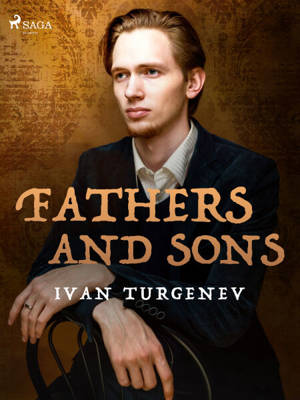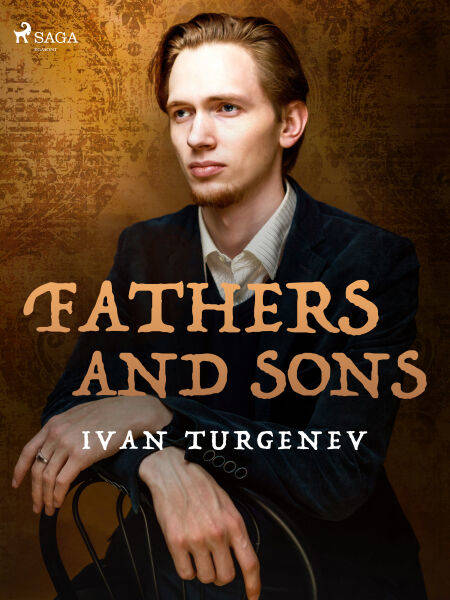
- Afhalen na 1 uur in een winkel met voorraad
- Gratis thuislevering in België vanaf € 30
- Ruim aanbod met 7 miljoen producten
- Afhalen na 1 uur in een winkel met voorraad
- Gratis thuislevering in België vanaf € 30
- Ruim aanbod met 7 miljoen producten
Zoeken
Omschrijving
First published in 1862, ‘Fathers and Sons’ is perhaps the most famous novel by renowned Russian author Ivan Turgenev. Turgenev had become increasingly aware of the widening schism at the time between liberals and the growing nihilist movement, which became his focus for this story. The tale follows the return of University students Bazarov and Kirsanov to their small village home, where they find their newly acquired worldviews coming into direct conflict with the beliefs of the previous generation. Both nostalgic and critical in tone, this timeless novel caused a stir upon its publication, and remains an acclaimed classic of Russian 19th century literature.
Ivan Turgenev (1818-1883) was a Russian novelist, playwright, poet, and short story writer. Born in Oryol, Turgenev spent time studying at the University of Moscow, the University of St. Petersburg, and the University of Berlin. His 1852 collection of short stories, ‘A Sportsman’s Sketches’ catapulted him into the literary limelight - a series of observations on nature and the evils of serfdom, Turgenev regarded it as one of his most important moral works. In 1854 amidst an oppressive atmosphere in Russia for writers and artists, Turgenev emigrated to Western Europe where he would spend a great deal of time throughout the latter part of his life, and which would lead to his belief in Russia’s need to westernise – an outlook which set him apart from his contemporaries Dostoevsky and Tolstoy. Some of Turgenev’s best-known works include ‘Rudin’, ‘A Nest of the Gentry’ and ‘Fathers and Sons’. He died in Paris in 1883.
Ivan Turgenev (1818-1883) was a Russian novelist, playwright, poet, and short story writer. Born in Oryol, Turgenev spent time studying at the University of Moscow, the University of St. Petersburg, and the University of Berlin. His 1852 collection of short stories, ‘A Sportsman’s Sketches’ catapulted him into the literary limelight - a series of observations on nature and the evils of serfdom, Turgenev regarded it as one of his most important moral works. In 1854 amidst an oppressive atmosphere in Russia for writers and artists, Turgenev emigrated to Western Europe where he would spend a great deal of time throughout the latter part of his life, and which would lead to his belief in Russia’s need to westernise – an outlook which set him apart from his contemporaries Dostoevsky and Tolstoy. Some of Turgenev’s best-known works include ‘Rudin’, ‘A Nest of the Gentry’ and ‘Fathers and Sons’. He died in Paris in 1883.
Specificaties
Betrokkenen
- Auteur(s):
- Vertaler(s):
- Uitgeverij:
Inhoud
- Aantal bladzijden:
- 136
- Taal:
- Engels
Eigenschappen
- Productcode (EAN):
- 9788726649369
- Verschijningsdatum:
- 9/07/2021
- Uitvoering:
- E-book
- Beveiligd met:
- Digital watermarking
- Formaat:
- ePub

Alleen bij Standaard Boekhandel
+ 8 punten op je klantenkaart van Standaard Boekhandel
Beoordelingen
We publiceren alleen reviews die voldoen aan de voorwaarden voor reviews. Bekijk onze voorwaarden voor reviews.











